As the late 1960s bled into the early 1970s, the Age of Aquarius was under attack from cantankerous and extremely loud sonic forces. The bubbly psychedelia and sweet-tempered music that had fueled hippie hearts and minds were being assailed by steelier and more squalid rock, and many of those rough-necked, hairy harbingers of menace would inspire heavy metal’s ascendence.
The debate about who was the first proto-metal artist is an endless circle of arguments and counter-arguments. You can reach back to the 1950s and find heavy metal’s origins in Willie Johnson’s blues, and Link Wray’s guitar rumbles. Step forward a decade, and heavy metal’s dawning is to be found on Cream’s 1967 album, Disraeli Gears. Iron Butterfly’s 1968 album, In-A-Gadda-Da-Vida, is an unquestionable proto-metal classic; but then, Blue Cheer’s Vincebus Eruptum album from the same year is a propulsive metal-in-the-making triumph too.
Ultimately, you can throw everyone who was amplifying their sound and vision in the late 1960s and early 1970s into the gene pool that evolved into heavy metal. The heavy rock superstars of that period, those who inspired and nurtured metal’s burgeoning years, are well known: Black Sabbath, King Crimson, Hawkwind, Vanilla Fudge, Jimi Hendrix, Led Zeppelin, Montrose, Deep Purple, Uriah Heep, Status Quo, Mountain, Grand Funk Railroad, Blue Öyster Cult, Atomic Rooster, Budgie, and more. Those artists, and many more, are rightly credited for their contributions to heavy metal. However, there are innumerable more obscure or unheralded groups that fortified the heavy metal machine too, and many are infinitely more interesting than their more famous brethren.
A plethora of less visible artists is celebrated by collectors and fans of heavy rock and metal, and while those bands never sold anywhere near the number of albums that Black Sabbath and Deep Purple did, they’re recognized as being equally important to heavy metal’s family tree.
Legions of underground musical legends litter the heavy rock graveyard, and the list below surveys a horde of those rowdy rockers. All the bands covered reflect the Age of Aquarius rotting, with their twisted psychedelia or progressive rock, doom-laden or whirlwind riffing, or dissonant arrangements; and you can hear their echo throughout heavy metal’s many sub-genres today.
Some bands will no doubt be familiar and some, I hope, will be entirely new to your ears. Additional, and just as electrifying, ‘see also’ bands are listed here too, and while this list only touches upon the hard rocking scenes around the globe in the late 1960s and early 1970s, the aim here is to provide a primer to spark a proto-metal bonfire burning in your heart–or, if it’s already raging, to simply heap more fuel atop the inferno.
Speed, Glue & Shinki – Eve (1971)
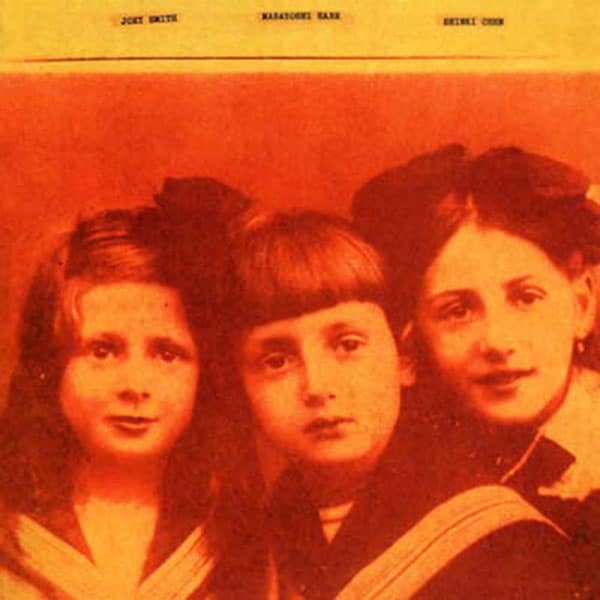
Speed, Glue & Shinki’s 1971 album, Eve, is a feast of searing and often crooked heavy blues. The trio were formed in 1970 and featured guitarist Shinki Chen (Japan’s answer to Jimi Hendrix), bassist Masayoshi Kabe, and Filipino singer and drummer Joey Smith. Kabe had been an enthusiastic glue sniffer in his youth, and Smith was a keen consumer of amphetamines, hence the band’s name. The group only produced one album, Eve. Low sales and Kabe and Shinki taking an immense dislike to Smith’s personal habits scuttled the group’s career quickly.
Various bootlegs and editions of Eve have been released, but the original record will serve you well. It’s 35 minutes of tweaked-out and eccentric heavy blues, and for those seeking more skewed Japanese psych ‘n’ roll, see Julian Cope’s magnificent book Japrocksampler for exhibits galore. See also: Blues Creation (Demon & Eleven Children), and anything by Les Rallizes Dénudés.
Captain Beyond – Captain Beyond (1972)
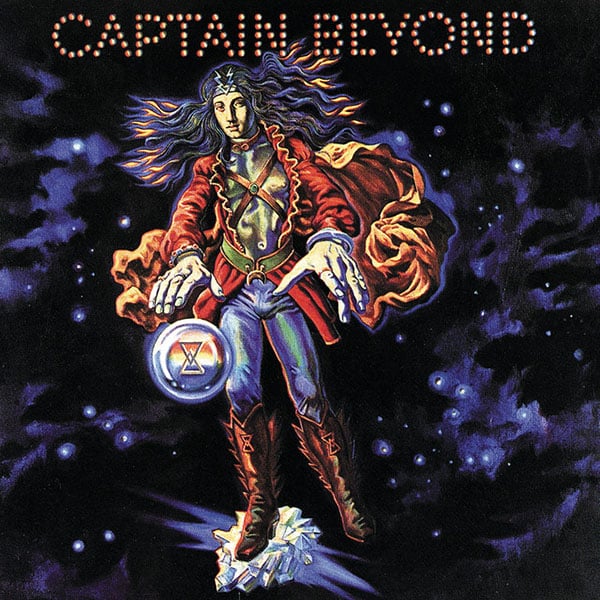
Captain Beyond formed in 1972 with ex-Deep Purple singer Rod Evans joining ex-Johnny Winter drummer Bobby Caldwell, and ex-Iron Butterfly members Larry Rheinhart (guitars) and Lee Dorman (bass). With a line-up like that, it’s hard to see how the band could fail, and for a couple of years, Captain Beyond orbited stardom but never landed. Captain Beyond’s self-titled 1972 debut is one of heavy rock’s best. Combining jazz, folk, prog, and hard-edged cosmic rock, each track on Captain Beyond tumbles into the next, and Rheinhart, Dorman, and Caldwell’s playing is innovative and sophisticated. Serpentine instrumental passages match the band’s desire to explore, and Evans’ rock-god voice leads listeners into curious lyrical realms.
Evans decamped after 1973’s less interesting Sufficiently Breathless was released, and the magic was gone. Still, Captain Beyond remains, and it’s a timeless piece of astronomical rock, with imaginative riffing, fluctuating time signatures, and far-out thematic concepts set to dazzle. See also: Captain Beyond (Live in Texas – October 6, 1973), Horse (Horse), and Jericho (Jericho).
Heavy Cruiser – Heavy Cruiser (1972)
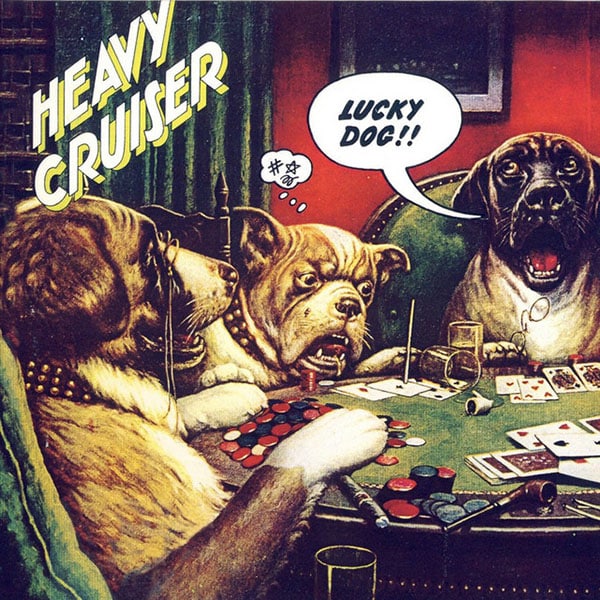
Canadian rock luminary Neil Merryweather took members from Californian blues rock band Mama Lion into the studio and, somewhat accidentally, recorded two great albums as Heavy Cruiser. The band’s Heavy Cruiser and Lucky Dog albums were gatherings of ideas more than albums of firm intent, but the session engineers and the group were impressed with the eight-track demos and improvised tunes (and management got a sniff of success), so the songs were duly bound in jacket covers.
Heavy Cruiser’s eponymous 1972 debut was a heavy, psyched-out guitar and organ duel, with in-studio jams and distortion-soaked covers making up an exuberant and buoyant LP. While contractual obligations caused the members’ names to go unlisted on both Lucky Dog and Heavy Cruiser, word soon got out about both LPs’ commitment to fuzzing things up, and rolling with the result. Thus, Heavy Cruiser finds themselves in the pantheon of obscure collectible rockers. See also: Space Rangers (Space Rangers and Kryptonite).
Wildfire – Smokin (1970)
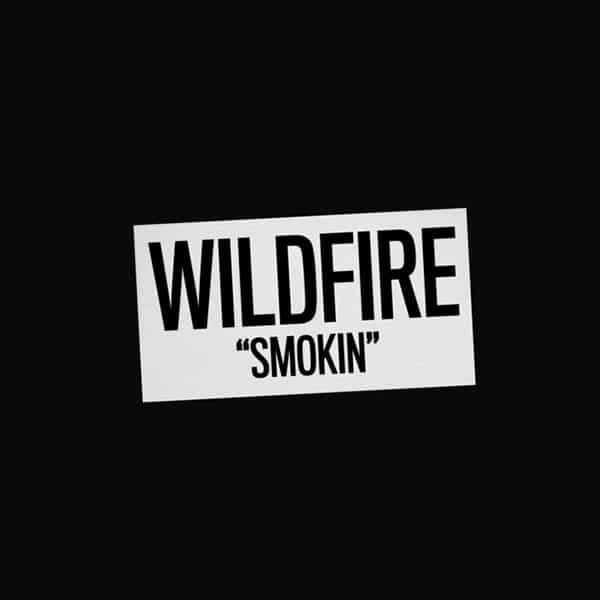
Nothing sets the heart of a vintage rock fan fluttering more than stumbling on an obscure and enjoyable private press release. Case in point, Wildfire’s sole album, 1970’s Smokin. The group of Randy Love (guitar and vocals), Danny Jamison (bass guitar and lead vocals), and Donny Martin (drums) called Austin, Texas home for some of the year and Southern California home for the rest during their late 1960s to early 1970s lifetime. Famed for their use of Quilter Amplifiers set to 11, Wildfire recorded part of their debut in California at the Beach Boys studio, and fuzz, fuzz, and more fuzz defined Smokin‘s character.
The LP was originally crafted as a demo to shop to labels, but the bulk of its minuscule run ended up being sold in head shops in California. Demo it may be, but Smokin is, well, fully smokin’. The ten-minute-plus “Quicksand” features heavy tweaks and turns aplenty, and “Stars in the Sky” is all rumbling, fizzing, and hissing hard rock imbued with an appropriate sinsemilla stench. Re-released and re-mastered in 2006, Smokin is perfect for those disposed to “inhale, hold, and cough” tunes. See also: Yesterday’s Children (Yesterday’s Children) and Pax (May God and Your Will Land You and Your Soul Miles Away).
Machine – Machine (1970)

Rotterdam-based Machine mixed psych, prog, and hard rock with plenty of brass on their single LP, 1970’s Machine. Singer John Caljouw had found a measure of recognition with his former band Dragonfly, but Machine tilted towards a more eccentric sound, with organ and horns featuring as strong lead instruments as much as guitars. Slinky funk and rock run through many of Machine’s tracks, but weightier songs, such as “Old Black Magic” and “Lonesome Tree” come with a doomy metal promise.
Flute, clarinet, saxophone, and trumpet all feature, bringing the Nederbeat and jazz stylings of late 1960s Dutch rock. Mixed with swirling keyboards and crunchy guitars, Machine really offers a touch of this (acid rock, soul, and trippy gambols) with a dash of that (folksy melodies and a few ponderously apocalyptic steps) making for a one-off formative album in the Euro garage and underground psych scene. See also: Cosmic Dealer (Crystallization) and Mainhorse (Mainhorse).
Hard Stuff – Bulletproof (1972)

Following guitarist John Du Cann’s forced exit from Atomic Rooster, he formed the short-lived but tremendously gratifying London-based trio Hard Stuff with former Atomic Rooster drummer Paul Hammond, and ex-Quatermass bassist John Gustafson. Signed to Deep Purple’s label, Purple Records, Hard Stuff only made two albums, their career was cut short by a car crash injuring both Du Cann and Hammond. The group’s first album, 1972’s Bulletproof, is an unheralded triumph of tumultuous guitars and thundering percussion.
Filled with blustery bluesy tunes such as “Sinister Minister” and “No Witch at All”, it buzzes and smolders like a power-station set to explode, and funked-up opener “Jay Time” is a stoner rock classic. Follow-up, 1973’s inferior Bolex Dementia, saw a reduction in brute strength in favor of proggier pursuits — which leaves Bulletproof as the only album you really need to check out. See also: Bullet (Entrance to Hell) and Incredible Hog (Volume 1 + 4).
Warpig – Warpig (1970)

When it comes to debating who is the most proto-metal of all, Canada’s Warpig sit high on the list. Their self-titled 1970 debut didn’t bring home the bacon, nor did a 1973 reissue bring any huge change in fortune. It wasn’t until Relapse Records reissued Warpig in 2006 that they finally found wider acclaim, and Warpig definitely deserve that recognition. Their debut is as important to metal’s evolution as Sir Lord Baltimore’s Kingdom Come and tracks off Warpig such as “Flaggit” and “Tough Nuts” are superlative examples of early North American metal.
However, that’s not even the album’s prime virtue. Its songs are routinely compared to acts such as Uriah Heep or Deep Purple, but it’s important to underscore that Warpigs’ hulking proto-metal predates the work it is so often compared to. Warpig were leaders, not followers, and these days Warpigs’ pioneering service to metal has been rightly inscribed in the genre’s hallowed halls. See also: Thundermug (Thundermug Strikes) and Mahogany Rush (Strange Universe).
November – En ny tid är här… (1970)
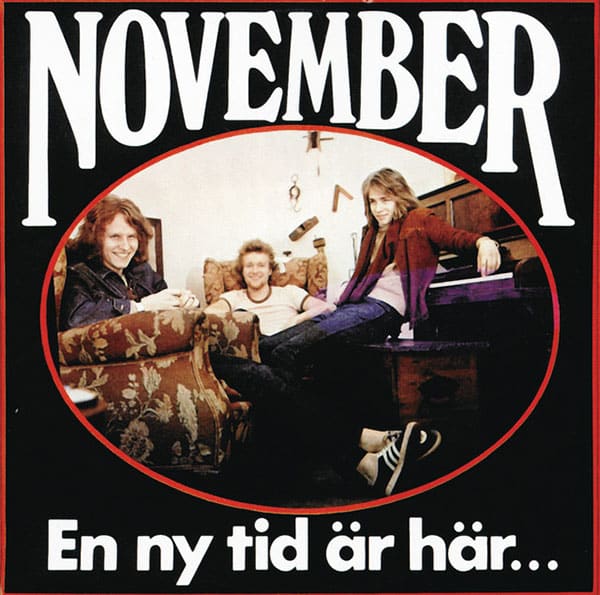
Swedish rock band November formed in 1969 in Stockholm and are often cited as the nation’s first true proto-metal band. There’s no doubt the band was informed by Blue Cheer and Cream on their debut, but November’s real strength lay in their infusion of Scandinavian melodies, and in their decision to sing in their native tongue. The band’s three albums, 1970’s En ny tid är här…, 1971’s 2:a November, and 1972’s 6:November, were warmly received by fans throughout Europe, with the Swedish lyrics serving as an exotic hook. Tracks from En ny tid är här… are joyous collisions of blues, folk, and hard rock, and they’re hipped-out, bud-friendly tunes made for volume, volume, and VOLUME. For non-Swedish speakers, the notion of enjoying November may seem limited, but their work is positive proof of the universal allure of primal rock ‘n’ roll. See also: Baltik (1973, Baltik) and Neon Rose (1974, A Dream of Glory and Pride).
Blackwater Park – Dirt Box (1971)
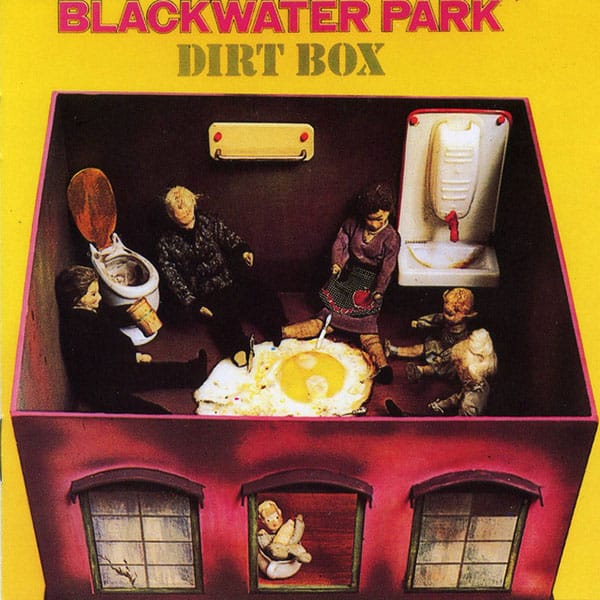
Evidence of German band Blackwater Park’s impact on metal can be found in the album title of the same name from Swedish progressive death metal giant Opeth. Like many of their kin at the time, Blackwater Park’s 1971 debut, Dirt Box, incorporates jazz, prog, space, and garage rock, all covered in a thick layer of grime. Although they were fronted by Englishman Richard Routledge, Dirt Box comes with that sense of 1960s/1970s exhilaration, where German musicians were freeing themselves of the nation’s legacy.
Blackwater Park didn’t last long as a group, but their sole album is filled with fervent rockers. The epic romp of “Rock Song” is a real highlight, bringing all the band’s influences together into an elongated acid-rock burn flecked with 1960s mysticism. Dirt Box may not have set the charts afire on release, but it’s still talked about enthusiastically today, proving its long-term influence. See also: Lucifer Was (Underground and Beyond) and Epitaph (Outside the Law).

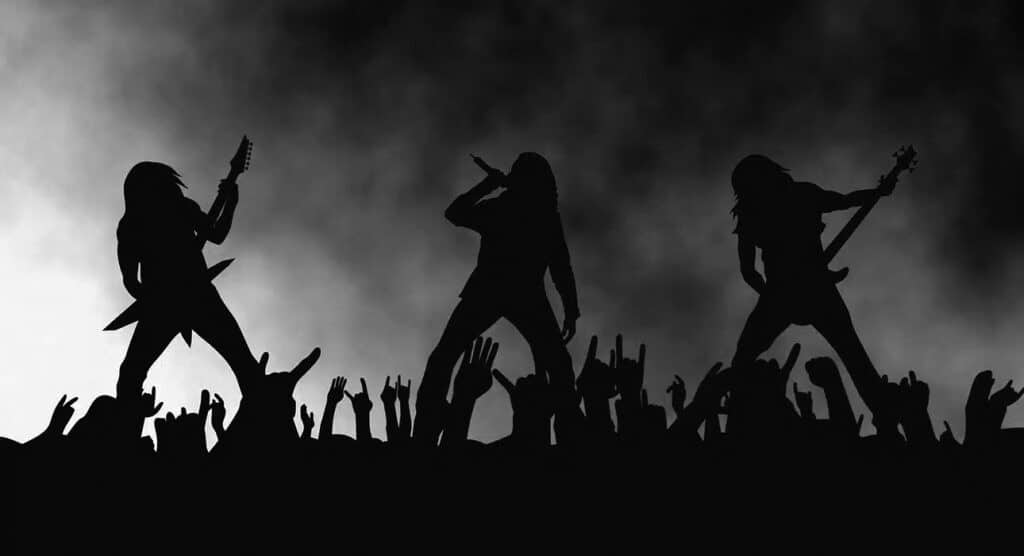
![Call for Papers: All Things Reconsidered [MUSIC] May-August 2024](https://www.popmatters.com/wp-content/uploads/2024/04/all-things-reconsidered-call-music-may-2024-720x380.jpg)



